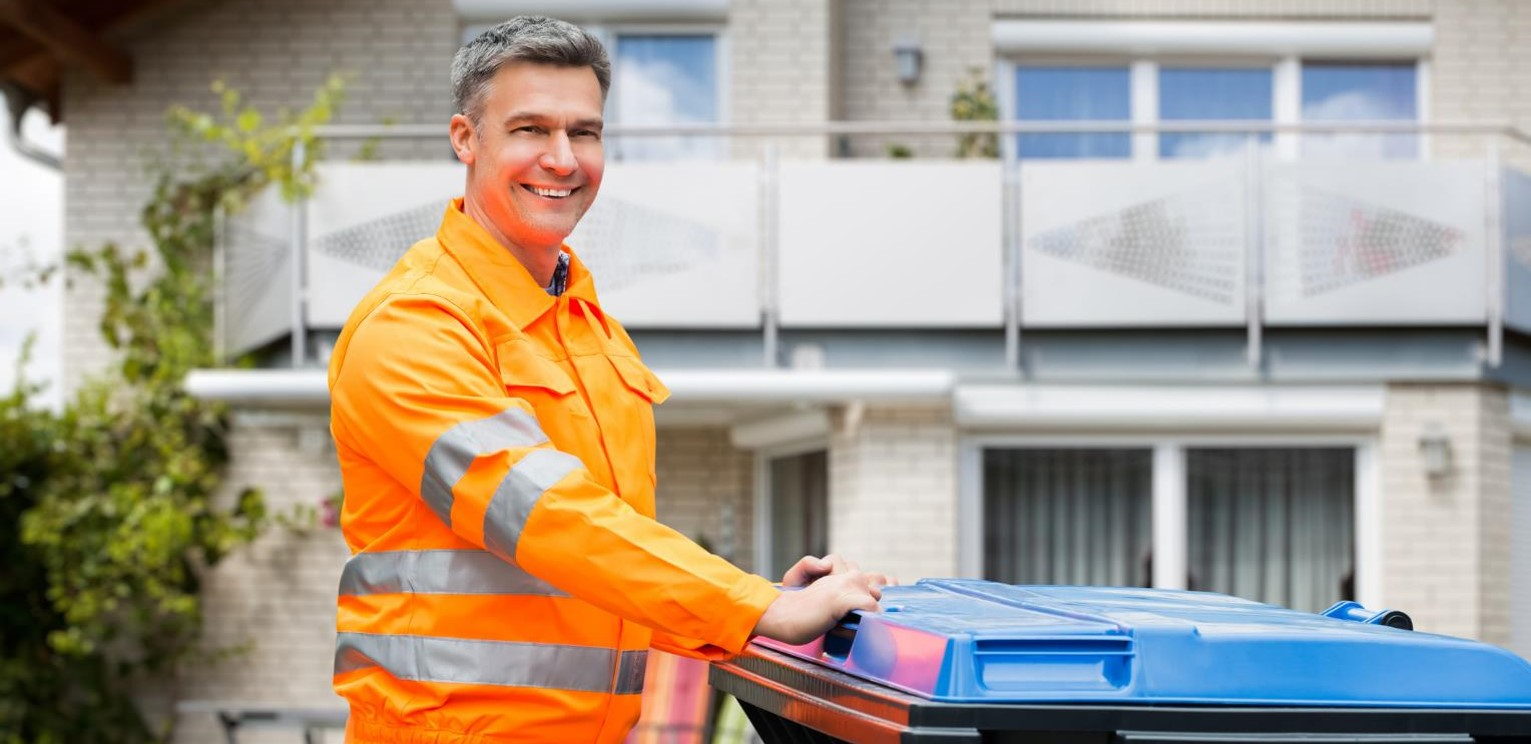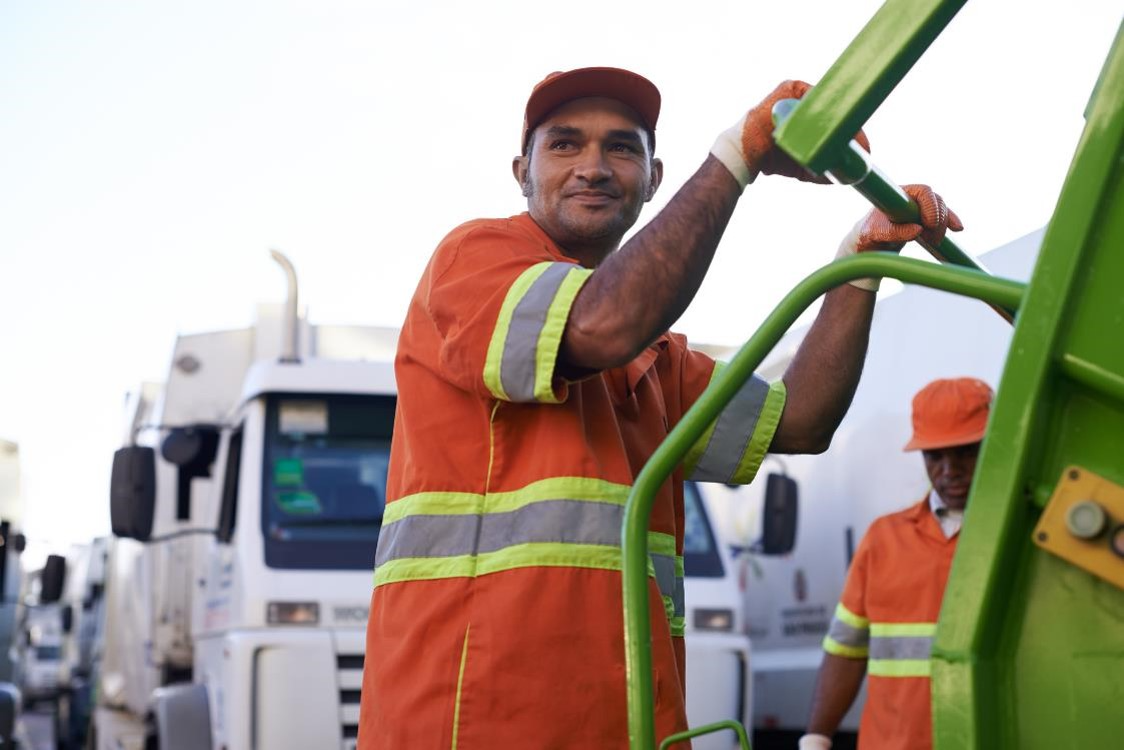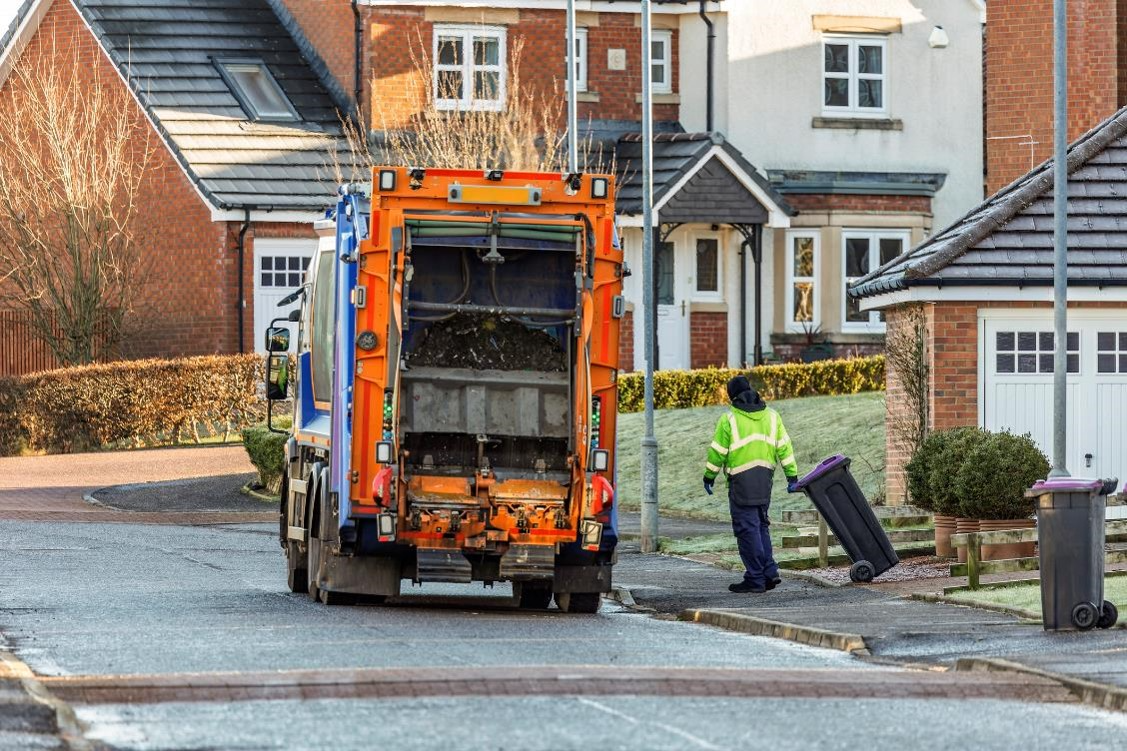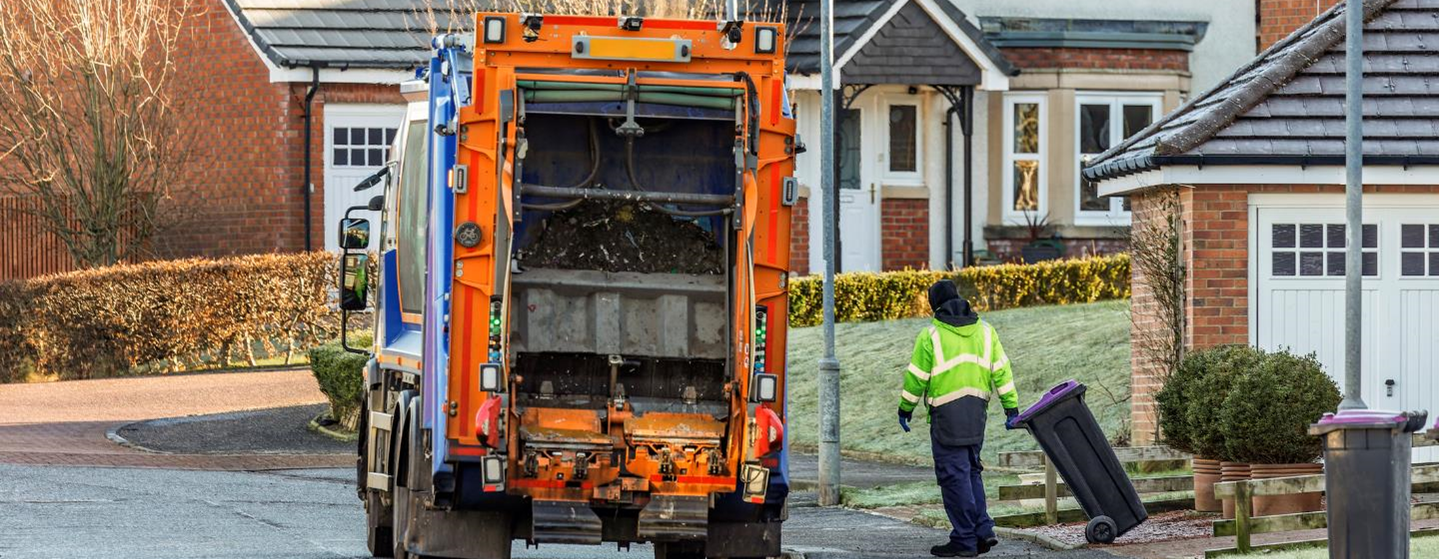How to Become a Refuse Collector
Find out what you need to become a Refuse Collector, from key skills and education to experience requirements and potential career progression.

What is a Refuse Collector?
A Refuse Collector collects waste from homes and businesses. They then transport the waste to a recycling centre, tip or incinerator to be disposed of.
The job of a Refuse Collector can be physically demanding as it requires the transport or lifting of heavy bins, so it is important to be physically fit for this role.
Refuse Collectors are expected to work in all weather conditions and can be exposed to some hazards. They will need to follow strict health and safety policies, and they are expected to work well as part of a team.
Find out more information about a Refuse Collector job description.
Dress Code
A Refuse Collector will need high-visibility clothes with reflective tape. They will also need to wear steel-toecap boots, weather-appropriate outwear and sturdy gloves.

Refuse Collector Responsibilities
A Refuse Collector is responsible for collecting and disposing of waste from the bins of residential homes and businesses. They will take the bins to the waste vehicle, connect them securely, and replace the bins where they were once they are empty.
Refuse Collector Tips
It is important to focus on becoming physically fit if you intend to become a Refuse Collector. Learning proper lifting techniques is essential to reduce the risk of sustaining any injuries.
Be prepared to work in all weather conditions, this means rain, snow, and icy conditions when the Refuse Collector will need to be outdoors.
Refuse Collector Skills
A Refuse Collector needs good physical fitness but it’s essential that they can work well within a team, as they will spend their shifts with other workers. They also need good time management to make sure they meet their collection quotas.
Physical Fitness
Being a Refuse Collector is physically demanding work which includes carrying heavy bins and sacks as well as a great deal of walking. Therefore, a Refuse Collector must be physically fit and capable of performing correct lifting techniques to reduce the risk of any injuries.
These are skills that will be shown during any health and safety training, and it is important to apply them to your daily life, as some injuries can be serious if the proper precautions aren’t taken.
Teamwork
A Refuse Worker needs to be able to work effectively with their crew to complete their collection route in the most efficient way.
Usually, a Refuse Collection team will consist of two bin collectors and a driver. This team will have a specific route to follow. It is important to be able to coordinate with the other workers and communicate with the rest of the team so that the route can be completed on time.
Time Management
It is crucial that a Refuse Collector can manage their time efficiently, as any setbacks can negatively affect the productivity and teamwork of the crew.
As the work relies on good physical fitness, if this is lacking it can cause slow collection which will increase the time it takes to complete the designated route. Be aware of any issues such as road congestion or problems caused by weather conditions, and work with the rest of the crew to optimise travel time and collection speed.
Duties of a Refuse Collector
It is the duty of a Refuse Collector to understand waste management protocols so that they can dispose of waste correctly. They will also need to know how to deal with bins that have not been correctly organised, such as the difference between recycling and general waste.
Collection & Disposal of Waste & Recycling
A Refuse Collector is tasked with collecting waste and disposing of it at the correct site. The Refuse Collector will therefore need to learn which bin to collect, e.g. general waste, recycling or garden waste. They will also be tasked with checking to make sure the bins have not been cross-contaminated with the wrong type of waste before disposal. It is important to do this as different waste is taken to different sites to be destroyed.
Be sure to adhere to health and safety protocols which will be shown during on-the-job training to ensure the correct disposal procedures.
Adhering to Waste Management Protocols
It is important to be alert for potentially hazardous materials such as batteries, needles and chemicals that might cause damage during disposal, and report them appropriately.
Refuse Collectors receive training to identify these risks and must keep them in mind during their shifts. There are many procedures to adhere to including secure loading of waste onto the collection vehicle, wearing the appropriate clothing, and being aware of your surroundings when manoeuvring the vehicle.
Refuse Collector Career Progression and Advancement
There is potential for people in Refuse Collector roles to move into higher Team Leader roles or even move into Environmental Services such as Sanitation Services.
Moving into Team Leader Roles
To move into a Leadership role, it is important to gain experience as a Refuse Collector, as good performance and demonstrating reliability and adherence to safety protocols can improve the chances of promotions.
Develop leadership skills as you work and be a reliable member of the team capable of finding solutions to problems. Where possible, take the initiative to speak to a supervisor about additional training.

Opportunities in Environmental Services
To move into Environmental Services, it is advised to develop your knowledge and skills by taking part in courses or receiving certification in specific fields such as Recycling.
These services are designed to protect the environment and human health and include many different branches such as infrastructure services like sanitation, and non-infrastructure services like air pollution prevention.
These roles require certification and transferable skills which should be learned as a Refuse Collector.
FAQs on Becoming a Refuse Collector
What Hours Do Refuse Collectors Typically Work?
Refuse Collectors typically work early mornings Monday to Friday with some weekend work. They may also be required to work on public holidays.
How Much Does a Refuse Collector Earn?
Refuse Collectors can earn in the range of £17,000 to £25,000 per year, which can increase if they have the correct licence and drive the collection vehicle.
What Does a Refuse Collector Do?
A Refuse Collector’s job is to collect household, commercial and industrial waste and dispose of it properly and safely using the correct safety protocols.


